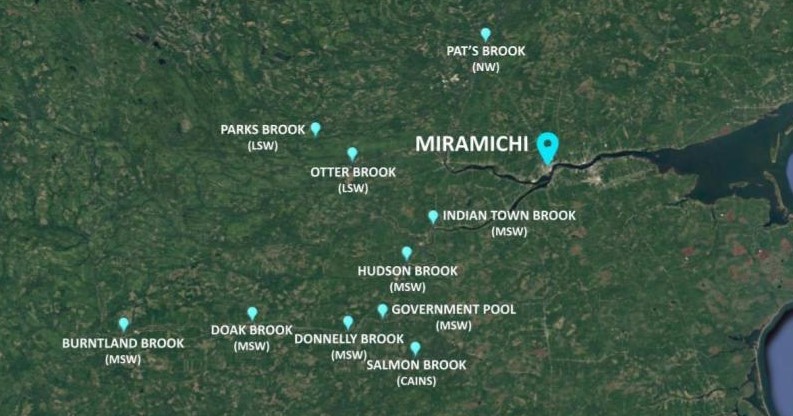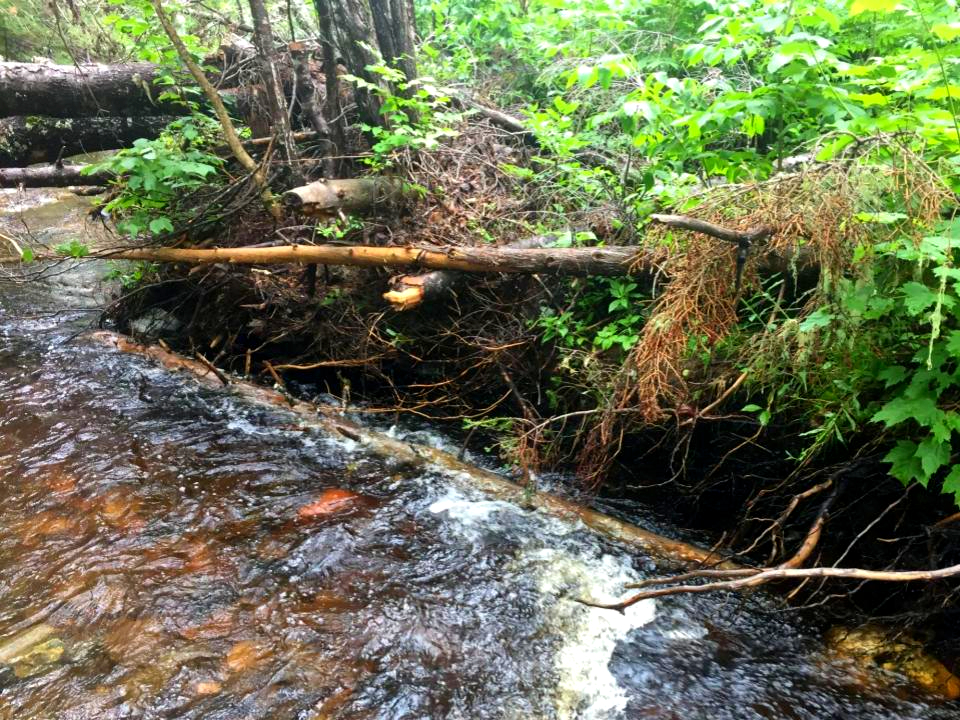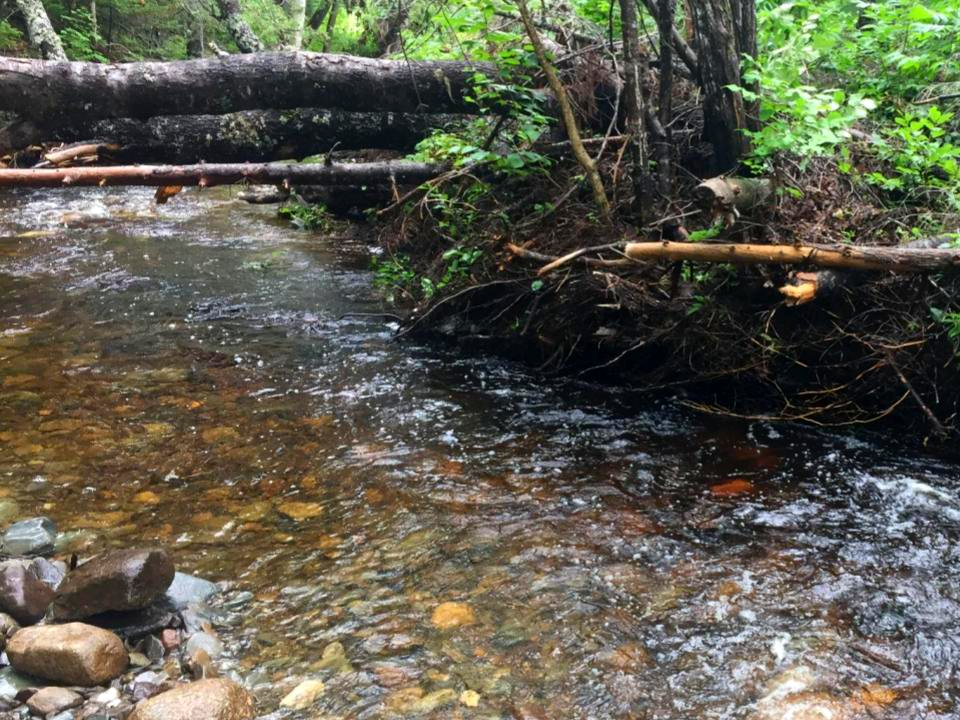Cold water brooks provide critically important habitat for adult and juvenile salmon during warm water events in the main stem of a river. The presence of these thermal refuge areas are crucial during times of high-water temperatures, where large numbers of salmon and trout of various life stages can hold position until surrounding water temperatures decrease. Without isolated pockets of cold water, these fish would be forced to remain exposed to warm water conditions that lead to physiological stress and potential mortality. The MSA recognizes these cold-water habitats as areas of significant value in protecting adult and juvenile salmon.
Between 2014 and 2018, the MSA identified ten major cold water habitats along the Miramichi River in need of enhancement. The pools restored included Burntland Brook, Doak Brook, Donnelly Brook, Hudson Brook, Indiantown Brook, Otter Brook, Parks Brook, Pat’s Brook, and Salmon Brook. To learn more about this restoration project, please visit the link below.

Over time these enhanced areas become overgrown with significant woody debris and obstructions impounding water. Obstructions are detrimental to cold water refuge zones as the impounded water is heated, reducing fish passage during the spawning season.
Each year, the MSA revisits former cold water habitat restoration sites to assess if the restorations are still functioning to their purpose. Necessary maintenance work is carried out at each location, and snorkel surveys are performed to evaluate if fish species are using these cold water habitats.













































































